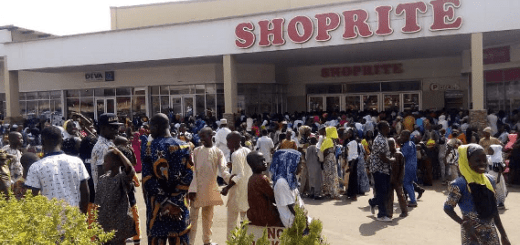South African supermarket chain Shoprite Holdings missed full-year forecasts on Tuesday, hurt by inventory shortages at home and currency devaluations in the rest of Africa.
Chief Executive Officer Pieter Engelbrecht said in Johannesburg a constrained economy, inventory shortages post industrial action and the implementation of a new enterprise wide IT system across its store base resulted in lost sales.
Trading profit fell by 14.3% to 6.9 billion rand, while basic headline earnings per share (HEPS) for the year ended June 30 declined by 19.6% to 780.8 cents, compared with a restated figure of 971.4 cents a year earlier.
READ ALSO:Kogi guber race intensifies as APGA chair blows hot
That was worse than the 15.5% fall forecast by analysts, IBES data from Refinitiv showed.
HEPS strips out certain one-off items and is the main profit measure used in South Africa.
Shoprite is recovering from a poor first half when sales and profit were hit by a strike at its largest distribution centre at home and installation of a new enterprise IT system which disrupted supply chains.
In the rest of Africa, currency devaluations and forex shortages in markets such as Angola, its biggest operation outside South Africa, have made it difficult to operate profitably elsewhere on the continent, touted as the next growth spot for retailers.
Engelbrecht says in-stock levels at the Supermarkets South Africa business, which generates 74.9% of group sales, are now higher than before it implemented the new system.
“Sales there grew by 4.9%, with like-for-like sales growth of 1.9%.
“Notwithstanding the much improved recent performance in our core Supermarkets South Africa division, it was a testing year,” Engelbrecht said in a statement.
Supermarkets Non-South Africa reported a trading loss of 265 million rand for the year as ongoing forex shortages, currency devaluations and the aftermath of rampant inflation in Angola took a toll on the business.
(NAN)


